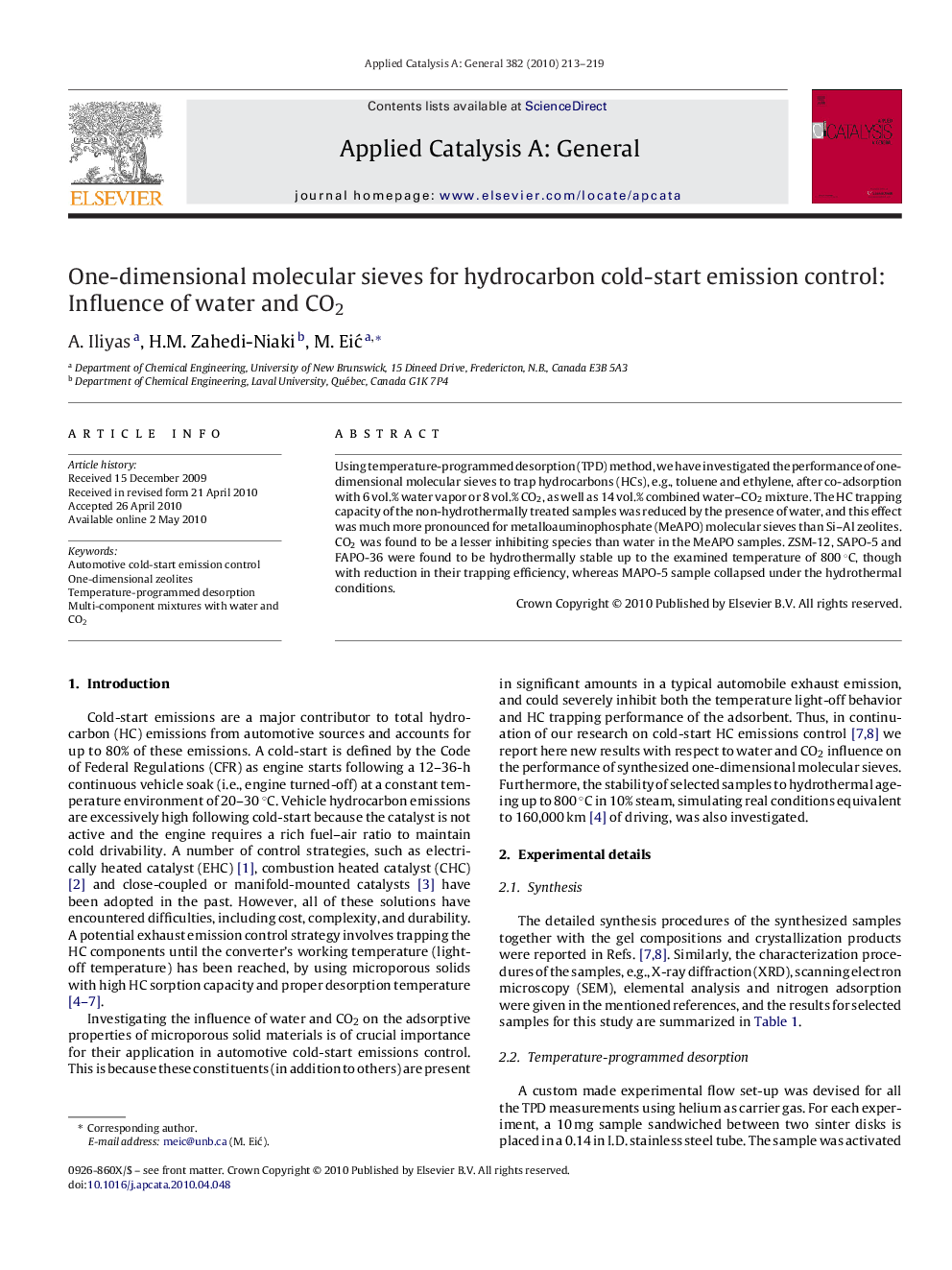| Article ID | Journal | Published Year | Pages | File Type |
|---|---|---|---|---|
| 42086 | Applied Catalysis A: General | 2010 | 7 Pages |
Using temperature-programmed desorption (TPD) method, we have investigated the performance of one-dimensional molecular sieves to trap hydrocarbons (HCs), e.g., toluene and ethylene, after co-adsorption with 6 vol.% water vapor or 8 vol.% CO2, as well as 14 vol.% combined water–CO2 mixture. The HC trapping capacity of the non-hydrothermally treated samples was reduced by the presence of water, and this effect was much more pronounced for metalloauminophosphate (MeAPO) molecular sieves than Si–Al zeolites. CO2 was found to be a lesser inhibiting species than water in the MeAPO samples. ZSM-12, SAPO-5 and FAPO-36 were found to be hydrothermally stable up to the examined temperature of 800 °C, though with reduction in their trapping efficiency, whereas MAPO-5 sample collapsed under the hydrothermal conditions.
Graphical abstractWe have demonstrated in previous studies that single-file diffusion concept (shown schematically in this figure) is a promising approach to control automotive cold-start emissions. This study was aimed to mimic practical conditions by presenting the influence of water and CO2 on the trapping behavior of selected one-dimensional molecular sieves for cold-start emission control application.Figure optionsDownload full-size imageDownload high-quality image (95 K)Download as PowerPoint slide
